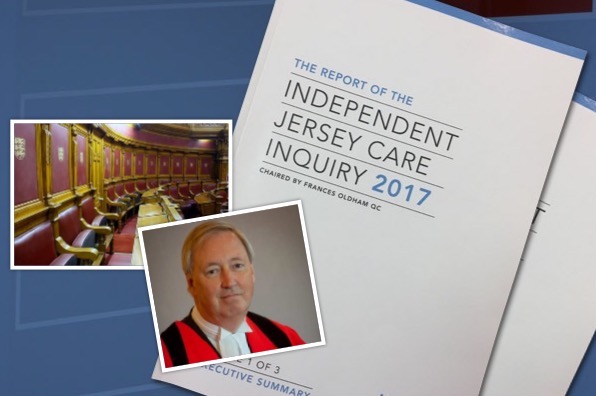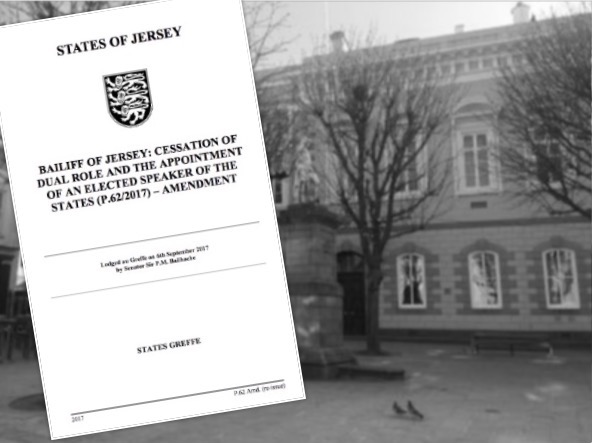

Further deep splits are emerging among the island's senior ministers, this time over the dual role of the Bailiff as head of both the States and the Courts.
The island's two most senior politicians, Senators Gorst and Bailhache, are on opposite sides over whether the historic position of the Bailiff as 'Speaker' of the States should be scrapped. In a move which will inflame his relationship with the Chief Minister, the Minister for External Relations has put forward a proposal to defend his brother’s dual role - he believes the issue should be put to a public vote to be held on the same day as elections, and at a cost of £20,000 to taxpayers.
However in a letter to the Bailiff which hasn't yet been published, Senator Gorst strongly supports calls for a major constitutional change, arguing that unless the Bailiff is removed from the States, the island will not be able to rebut allegations of "the Jersey Way."
Debate over separating the Bailiff’s powers has raged on over many years, but was reignited this summer following the publication of the £23million Care Inquiry report. In clear terms, it actively recommended scrapping the Bailiff’s political role.

Pictured: The £23m Care Inquiry report recommended that the Bailiff - the Island's top judge - should no longer be involved in politics.
Ministers often argue that there is free exchange of views around the Council table, but in recent months deep splits have emerged on key issues such as the removal, reappointment and removal again of Senator Philip Ozouf, the funding plans for the Island's biggest ever capital project and the critical draft migration policy.
Now the role of the Bailiff has opened a further split.
In a written report justifying his referendum idea, Senator Bailhache argues that the qualities of a member of the judiciary - “fairness, objectivity, integrity and procedural competence” – may not be so easily found in a member of the States, who would have to take on the role if the Bailiff, William Bailhache, were ousted.
With all members of the Council of Ministers bound by collective responsibility – a principle meaning that they must vote and speak with one voice on each issue – the move represents a strong breaking of ranks from Sir Philip, an influential ally of Gorst on the ministerial team. That conflict was further reflected in his decision to publish his proposal under the name ‘Senator Sir P.M. Bailhache’ rather than under his Ministerial title.

Pictured: Sir Philip did not submit his proposition under his Ministerial title, indicating that he doesn't have the full support from the Council of Ministers.
Senator Gorst is on record as stating that he is keen to implement all of the Care Inquiry’s recommendations, and has since set up a special panel of Deputy Montfort Tadier, Deputy Simon Bree and Senator Philip Ozouf to investigate how the Bailiff’s dual role could be scrapped.
It is thought that keeping Senator Bailhache onside played a part in the Chief Minister’s decision not to bring the role-splitting proposition himself. Instead, Deputy Tadier did so. Senator Bailhache, however, mused: “The answer must be that the Chief Minister is not persuaded that there is public support for this significant constitutional change.”
In the fall-out following the Care Inquiry, the Bailiff wrote to the Chief Minister to defend his job. Senator Gorst responded in late August in a letter that he had originally intended to share with the media, but that plan was revoked, however, and he has now declined to comment further until the debate takes place next week.
Comments
Comments on this story express the views of the commentator only, not Bailiwick Publishing. We are unable to guarantee the accuracy of any of those comments.